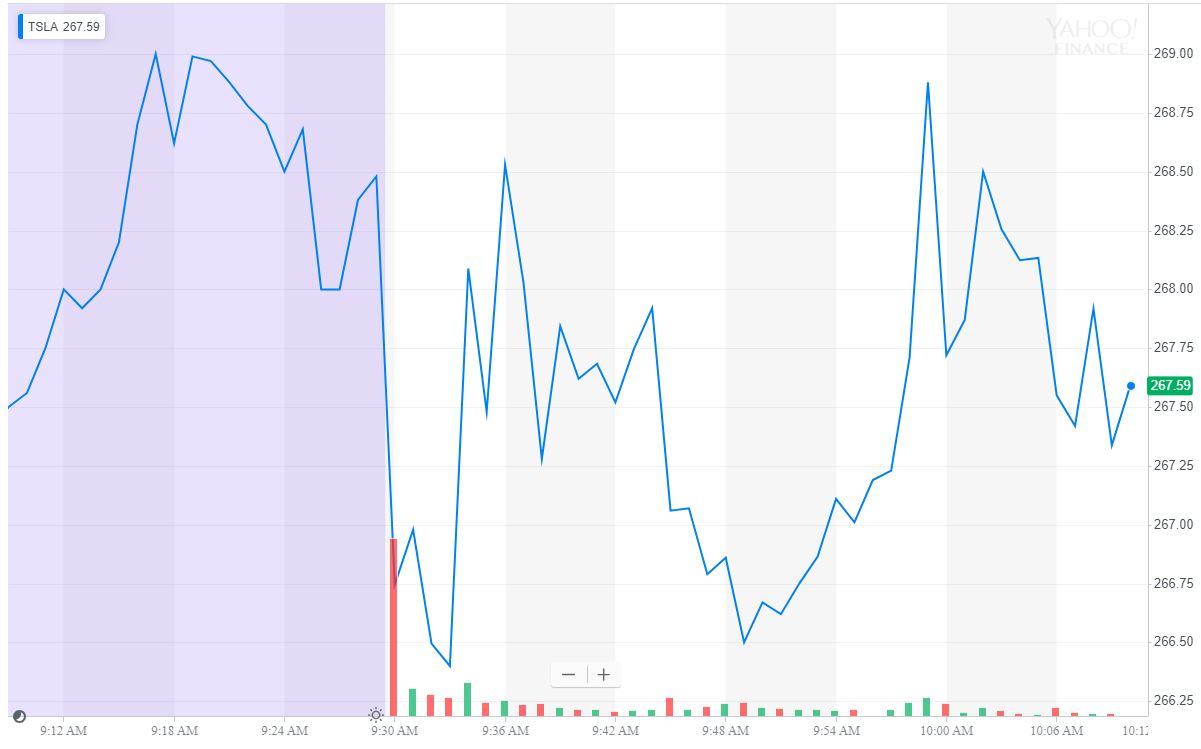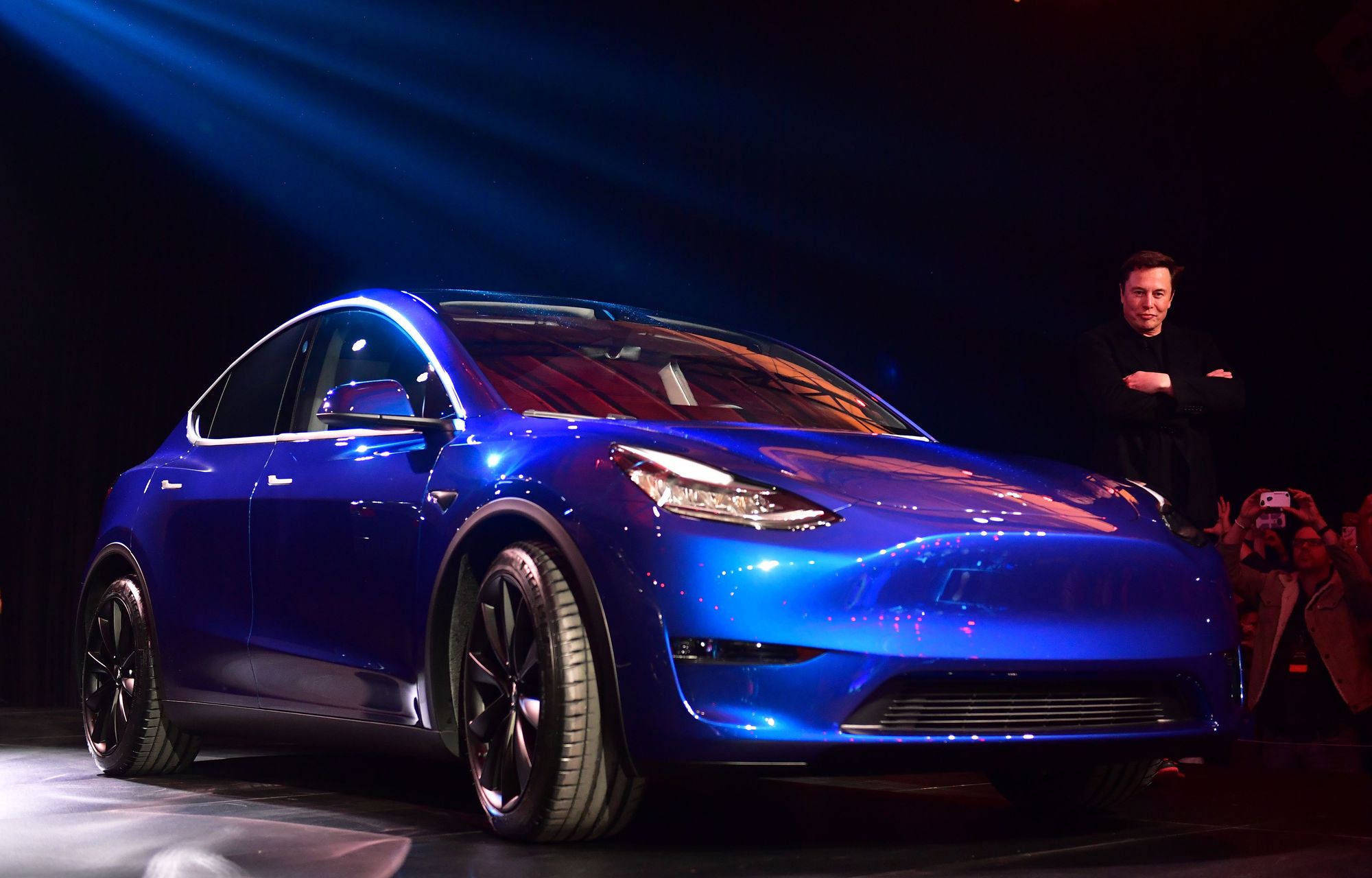Tesla Stock Plunges After EV Titan Abandons $4.5 Billion Gigafactory Expansion

Tesla stock fell by as much as 4% on Thursday. | Source: STR / AFP
Tesla stock just can’t seem to catch a break. The latest shock? The Elon Musk-led firm and Panasonic abruptly shelved plans to expand the $4.5 billion Gigafactory 1 in Nevada.
Tesla Stock Suffers Another Major Setback
Already the largest EV battery plant in the world, Tesla and Panasonic had planned to expand Gigafactory 1 by a staggering 50% to 54GWh by 2020. The proposed increase stemmed from expected demand following the launch of the Model Y SUV.

Tesla stock fell more than 4% in pre-market trading, dipping as low as $265.60 following the bell. By press time, TSLA shares had rallied back to $268.85 for a loss of 2.61%.
Tesla’s Annus Horribilis Goes On
Following a dismal Model Y reveal with none of the expected demand spikes, TSLA shares took a big hit, leading both companies to rethink the expansion plan. A statement confirming the cutback by Panasonic said:
“Panasonic established a battery production capacity of 35GWh in Tesla’s Gigafactory 1 by the end of March 2019 in line with growing demands.Watching the demand situation, Panasonic will study additional investments over 35GWh in collaboration with Tesla.”
Since 2017, the battery cells for the Tesla Model 3 have been produced by Panasonic at the Gigafactory, which also hosts battery pack assembly for production models. The companies put a total of $4.5 billion into the factory, and until just six months ago, Panasonic was considering piling another $1.35 billion into the plant.
“We will of course continue to make new investments in Gigafactory 1, as needed,” a Tesla spokesperson told Nikkei.
Domino Effect of Low Demand

The decision to halt further expansion of Gigafactory 1 follows Model 3 production and demand woes. The mid-range sedan, Tesla’s cheapest vehicle and an entry point to the mass market, has been plagued by missed production deadlines and weakening consumer demand.
In the first quarter of 2019, sales of Tesla units fell by almost 30% owing to logistics problems, reduced EV tax credits, and the US-China trade war.
Panasonic has long been the exclusive battery cell producer for Tesla, who is also their biggest client. In November, however, Tesla CEO Elon Musk indicated that Tesla hoped to source battery cells from local suppliers for the new Gigafactory in Shanghai. The news placed severe pressure on Panasonic shares.
While little has been heard of the matter since then, Tesla’s consumer woes may have affected its collaboration with Panasonic. The firm will no longer be investing in Tesla’s EV plant in China; it will instead render technical support and send a few batteries from Nevada to Shanghai.
The future of the Tesla-Panasonic partnership depends to a large extent on the success of the Model Y, which in turn looks dependent on the price. Currently, the cheapest Tesla starts from around $35,000 with the batteries accounting for more than half the cost of the entire vehicle.